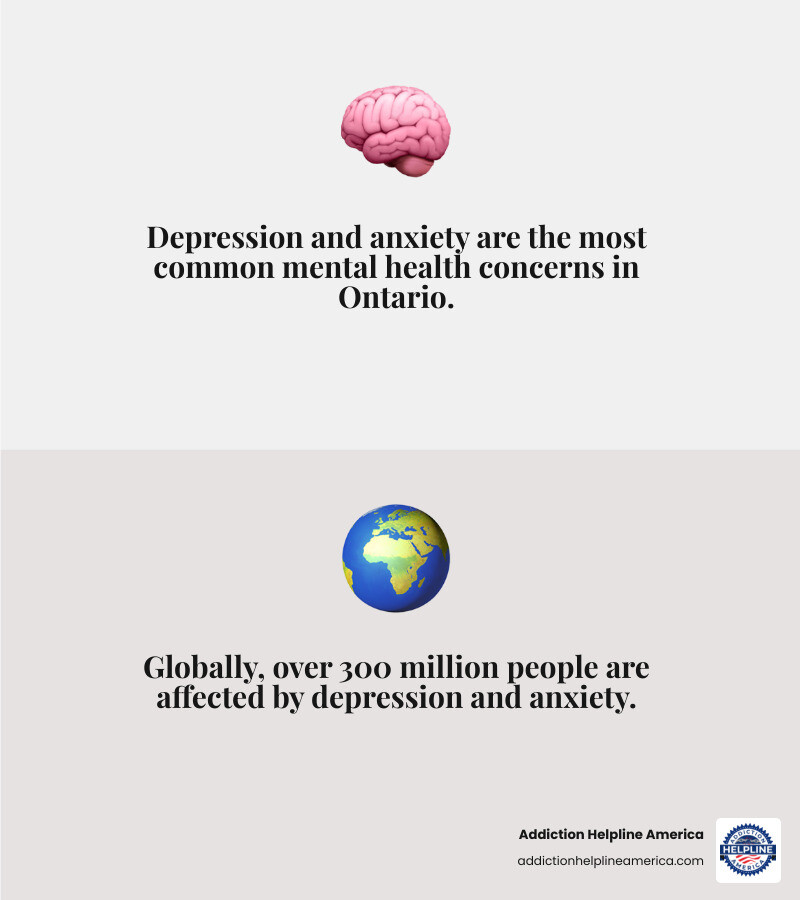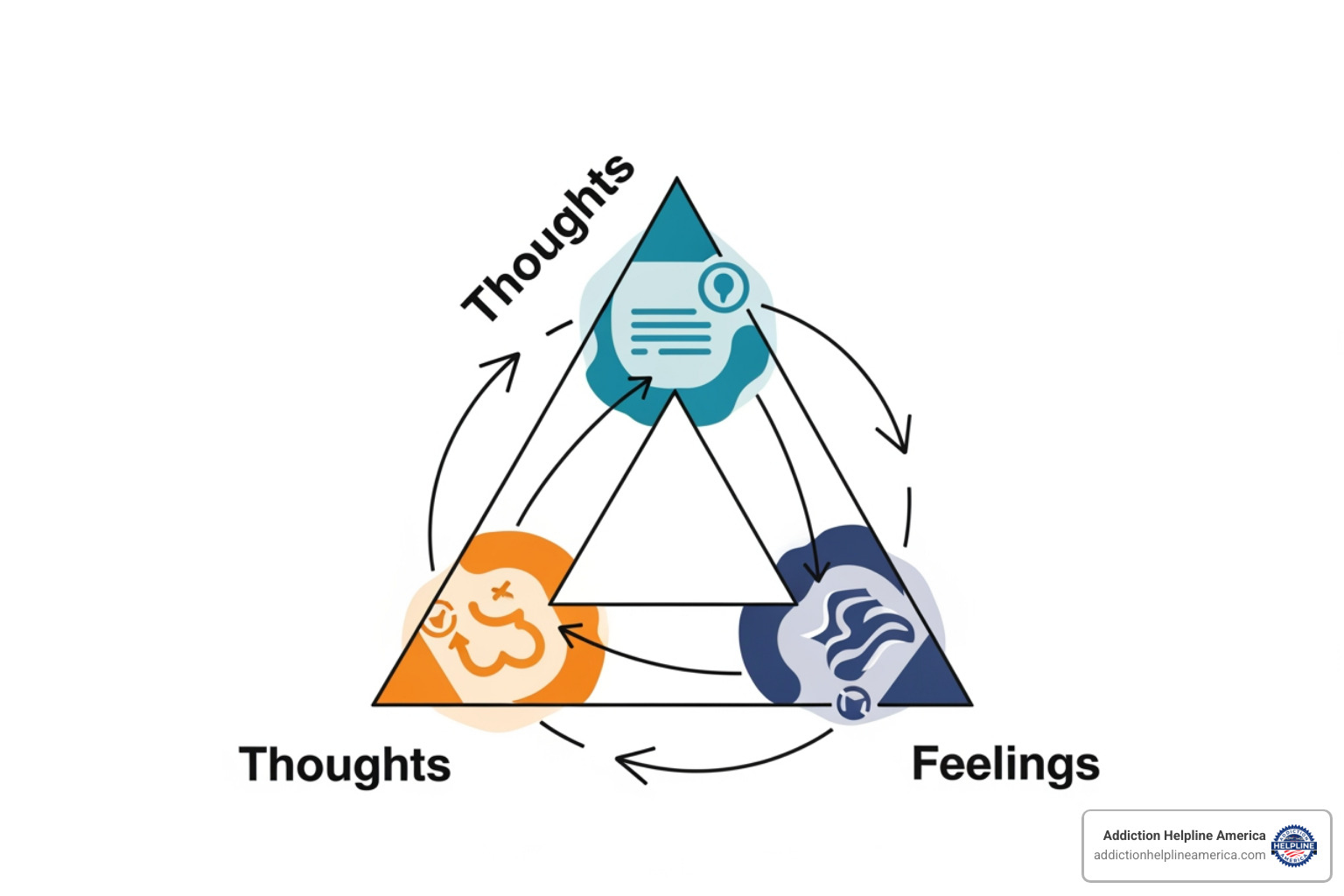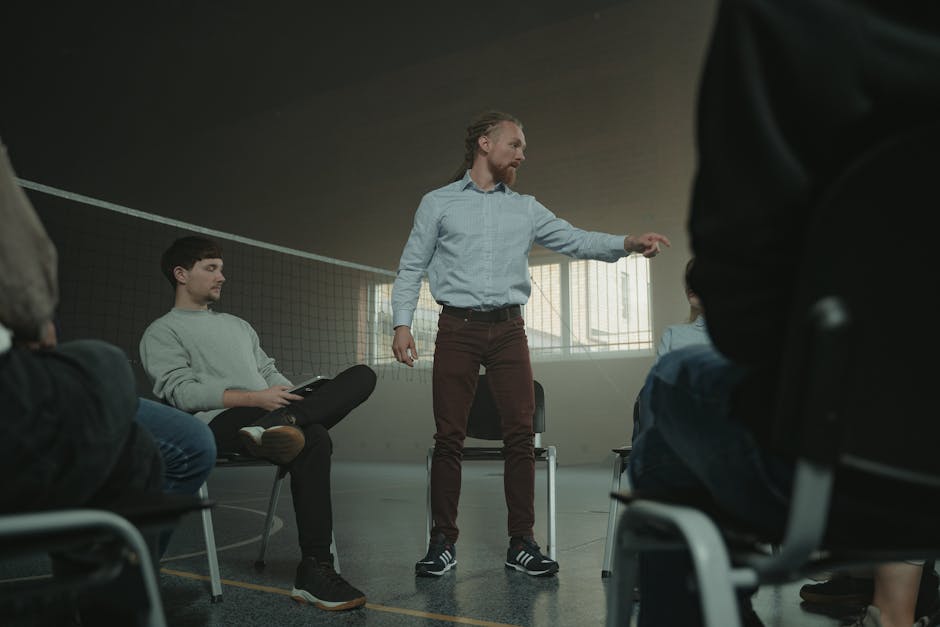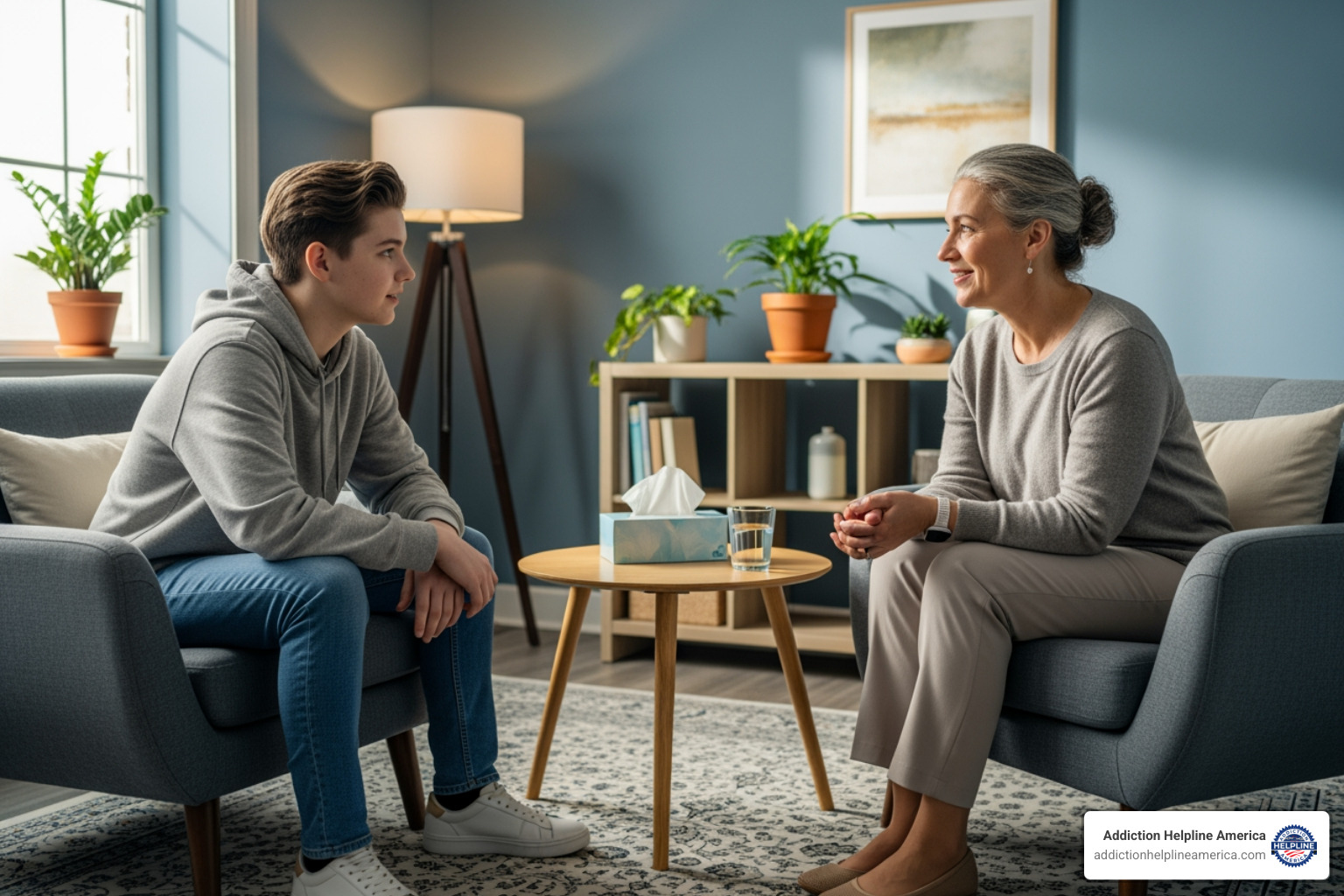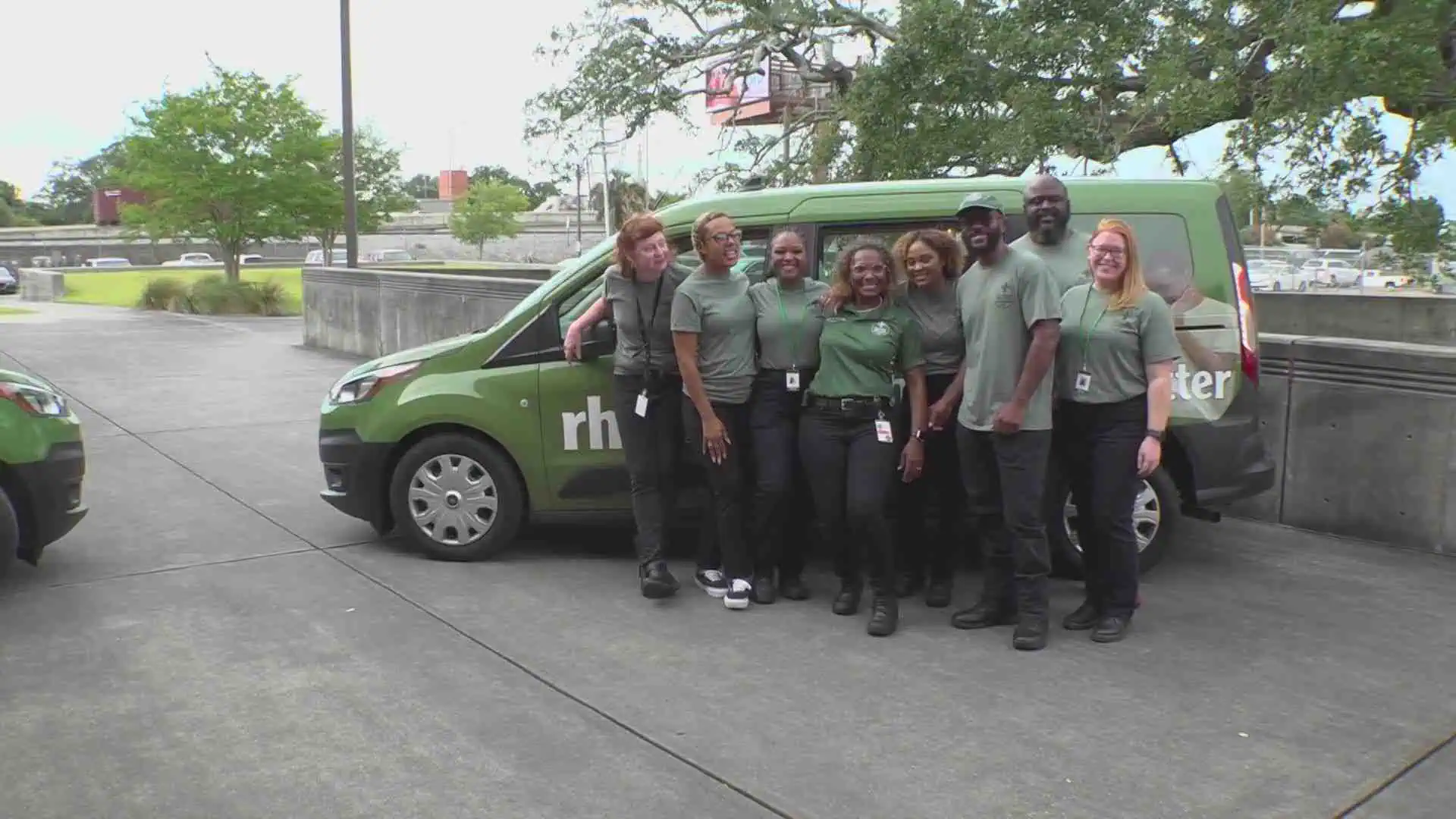
Understanding Your Options: Finding Mental Health Support
Searching for a depression and anxiety therapist near me can connect you with help through several pathways:
- Publicly-funded or low-cost therapy: Community mental health centers and state-funded programs often provide affordable, evidence-based care.
- Private practice therapists: Psychologists, counselors, and social workers who specialize in depression and anxiety treatment.
- Sliding scale options: Reduced-cost therapy with intern therapists or registered professionals who adjust fees based on income.
- Youth-specific programs: School-based counseling, university wellness centers, and community programs for young people.
- Crisis support: 24/7 helplines including the 988 Suicide & Crisis Lifeline.
Self-referral is often available, meaning you don’t always need a doctor’s referral to start accessing help.
Depression and anxiety are among the most common mental health concerns, affecting millions of people. The good news is that multiple pathways exist to connect you with qualified support, whether through government-funded programs, private therapists, or crisis services.
Finding the right therapist can feel overwhelming when you’re already struggling. Understanding your options—from publicly-funded services to private practice routes—helps you make an informed choice about your care.
At Addiction Helpline America, we connect individuals and families with vital mental health resources, including helping people find a depression and anxiety therapist near me who fits their unique needs and circumstances. Our team has guided thousands through the process of accessing appropriate mental health care, whether through publicly-funded programs or private practice options.
Simple depression and anxiety therapist near me glossary:
Understanding Publicly-Funded and Low-Cost Therapy Options
When you’re searching for a depression and anxiety therapist near me, the cost of private therapy can feel like a significant barrier. However, affordable and professional therapy is available through various publicly-funded and community-based programs across the country.
These services are designed to provide evidence-based care for common mental health challenges like depression and anxiety to those who might otherwise be unable to access it. If you’re dealing with low mood, excessive worry, or other mental health concerns, these programs can be an excellent starting point.
What Are Community Mental Health Centers?
Community Mental Health Centers (CMHCs) are a cornerstone of accessible mental health care in the United States. These centers receive public funding to provide comprehensive services to residents of a specific geographic area, regardless of their ability to pay.
CMHCs are designed for individuals experiencing a range of mental health conditions, including mild to moderate depression, anxiety disorders, PTSD, and OCD. They aim to fill the gap for those who may not have insurance or whose insurance doesn’t adequately cover mental health treatment.
Services Offered and How to Find Them
These centers focus on proven treatments like Cognitive Behavioural Therapy (CBT). Services often include:
- Individual and group therapy
- Guided self-help programs
- Case management to connect you with other social services
To be eligible, you typically need to be a resident of the area the center serves. Many use a sliding scale fee structure, where the cost is based on your income.
Finding these services is simpler than you might think. A great first step is to use the SAMHSA (Substance Abuse and Mental Health Services Administration) National Helpline and treatment locator. Your primary care physician or local health department can also provide referrals.
It’s important to know that these programs are typically not for acute crisis situations (which are covered later) and may not offer long-term, open-ended therapy. Their focus is on providing structured, effective treatment to help you develop coping skills.
If you’re feeling overwhelmed about where to start, Addiction Helpline America can help you steer these options. We’ve helped thousands of people understand the mental health system and find the right support—whether that’s through publicly-funded programs or other pathways that might be a better fit.
The Power of CBT: A Closer Look at a Key Therapy Method
If you’ve started looking for a depression and anxiety therapist near me, you’ve likely encountered the term “CBT.” Cognitive Behavioural Therapy is one of the most researched and effective approaches for treating depression and anxiety, and it’s a foundational approach in many effective treatment programs.
CBT is built on a simple idea: your thoughts, feelings, and behaviors are all connected. By learning to change unhelpful thought patterns, you can influence your emotions and actions. CBT provides practical, concrete skills to understand what’s happening in your mind and how to respond differently.
Unlike therapies that focus heavily on the past, CBT is goal-oriented and structured. You’ll work with your therapist to identify specific problems and learn strategies you can use right away. It’s an evidence-based treatment, meaning scientific research has shown that it genuinely works for most people who commit to the process.
How CBT Helps with Depression
Depression often traps people in a cycle of negative thoughts, low mood, and withdrawal from life. CBT helps break this cycle. The first step is often identifying negative thought patterns, or “cognitive distortions,” like thinking “I’m worthless” or “Nothing ever works out.” CBT teaches you to challenge these thoughts and develop a more balanced, realistic perspective.
Another key component is behavioral activation, which means gradually re-engaging with activities you used to enjoy. Action can often precede motivation; doing something, even when you don’t feel like it, can lift your mood and create a sense of accomplishment. If depression has been weighing you down, we can help you Find depression treatment options that use this proven approach.
How CBT Helps with Anxiety
Anxiety can be exhausting, filled with constant worry and racing thoughts. CBT offers concrete strategies to regain control. For managing worry, you might learn to distinguish between productive worries (problems you can solve) and unproductive ones (things outside your control).
One of the most powerful tools is facing fears through exposure therapy concepts. With your therapist, you’ll create a gradual plan to safely confront feared situations, learning that your anxiety is manageable. CBT also incorporates relaxation techniques like deep breathing to calm your body’s physical response to anxiety. By identifying and changing the avoidance behaviors that fuel anxiety, you can take back control. If anxiety has been running your life, we’re here to help you Explore anxiety treatment programs that offer real relief.
Finding a Depression and Anxiety Therapist Near Me: Private Practice Options
While publicly-funded programs offer excellent resources, they may not be the right fit for everyone. You might need longer-term support, a specific type of therapy, or want to avoid a potential wait time. This is where private practice comes in, offering a wide world of therapeutic approaches and specializations.
When you’re searching for a private depression and anxiety therapist near me, you are customizing your mental health care. You can choose a professional based on your specific needs, preferences, and financial situation. Many private therapists also offer telemental health services, allowing you to receive therapy from the comfort of your own home.
Types of Mental Health Professionals
Understanding the different credentials helps you find the right professional for your needs. In the U.S., you’ll commonly encounter:
- Psychiatrists (MD): Medical doctors who specialize in mental health. They can diagnose conditions and are the primary professionals who prescribe and manage medication.
- Psychologists (PhD or PsyD): Hold doctoral degrees and specialize in psychological assessment, diagnosis, and psychotherapy. They are experts in evidence-based therapies like CBT but typically do not prescribe medication.
- Licensed Professional Counselors (LPC) or Licensed Mental Health Counselors (LMHC): Have master’s degrees and are licensed to provide psychotherapy for individuals, couples, and families.
- Licensed Clinical Social Workers (LCSW): Hold master’s degrees and provide counseling with a unique focus on how social and environmental factors impact mental health. They are also skilled at connecting clients to community resources.
- Licensed Marriage and Family Therapists (LMFT): Have master’s degrees and specialize in relational issues, but are also qualified to treat individual conditions like depression and anxiety.
| Professional Type | Education & Training | Focus & Services |
|---|---|---|
| Psychiatrist | Medical Doctor (MD) + specialized residency | Diagnoses, prescribes and manages medication, may offer psychotherapy. |
| Psychologist | Doctorate (PhD or PsyD) | Psychological assessment, diagnosis, and psychotherapy (e.g., CBT). |
| LPC / LMHC | Master’s degree; state licensed | Provides psychotherapy for individuals, couples, and families. |
| LCSW | Master’s degree in social work (MSW); licensed | Counseling and psychotherapy with a focus on social/environmental factors. |
| LMFT | Master’s degree in marriage and family therapy; licensed | Specializes in relational issues and family systems. |
How to Find a Private Therapist
Professional directories are an excellent starting point. Websites like Psychology Today, the American Psychological Association (APA) locator, and the Anxiety & Depression Association of America (ADAA) directory allow you to search for licensed professionals by location, specialty, and insurance. Asking for a referral from your primary care physician is another great option. When searching online, use specific terms like “CBT therapist for anxiety” to narrow your results.
This process can feel daunting. At Addiction Helpline America, we offer free, confidential guidance to help you find the right therapist from our vast network. Contact Addiction Helpline America for therapist recommendations and let us help.
Key Considerations When Choosing a Therapist
Finding a good fit is crucial. The relationship you have with your therapist—the “therapeutic alliance”—is a strong predictor of success. Consider their therapeutic approach (e.g., structured CBT vs. exploratory), specialization in depression or anxiety, and personality fit. Many therapists offer a free 15-minute consultation to see if you click. Also, consider logistics like location, appointment availability, and whether they offer virtual sessions. Don’t be afraid to speak with a few therapists before deciding. For more insights, you can Learn about choosing the right therapist.
Affordable Therapy and Sliding Scale Options
Cost should not stop you from seeking help. Many private therapists offer sliding scale fees, adjusting their rates based on your income. A great option for affordable care is working with intern therapists. These are master’s-level students working under the close supervision of licensed professionals, offering sessions at a significantly reduced rate (often $40-$65). Community health centers and university clinics also provide low-cost services. We can help you Find affordable therapy in your area and explore options that fit your budget.
Essential Resources for Youth and Young Adults
Young people face unique pressures, from school and social media to figuring out their identity. Mental health challenges can feel especially isolating for them. Fortunately, many specialized programs and resources are designed specifically for youth and young adults who are struggling.
When searching for a depression and anxiety therapist near me for a younger person, it’s helpful to know about these age-appropriate services, which are often more accessible and less intimidating than traditional adult services.
Support for Teens
The teenage years can be turbulent. For teens experiencing low mood, anxiety, or stress, there are many avenues for support. School counselors are often a first point of contact, providing confidential support and referrals within the school system. Many communities also have teen-focused mental health programs that teach practical coping strategies in a relatable way.
These programs focus on building resilience and developing real-world skills to manage difficult emotions. If you’re looking for resources for a teen in your life, we understand how important it is to find the right fit. Contact Addiction Helpline America for youth support resources and we’ll help you explore what’s available.
Services for Children and Youth
Sometimes a young person needs to talk to someone right away. Free, 24/7, confidential services are available nationwide. The Crisis Text Line (text HOME to 741741) allows youth to connect with a trained crisis counselor via text message. For LGBTQ youth, The Trevor Project offers 24/7 support via phone, text, and chat.
The anonymity and accessibility of these services can feel safer and more comfortable for a young person in distress. This round-the-clock support can be a lifeline during moments of crisis. Reach out for youth mental health support and we can help you find similar services through our network.
Support for Young Adults (Ages 18-25)
The transition to young adulthood brings its own challenges. College and university counseling centers offer free or low-cost confidential support services custom to the unique pressures of academic life, financial stress, and new social dynamics.
Many communities also have Youth Wellness Hubs or similar integrated service centers. These are welcoming, one-stop locations where young people can access mental health services, substance use support, primary health care, and social services. At Addiction Helpline America, we can help you Find youth wellness resources through our extensive network across the United States.
Immediate Help: Crisis Lines and Helplines
When you’re in deep distress, you need to know where to turn for immediate help. Addiction Helpline America operates across all 50 US states and can connect you with crisis support wherever you are. Immediate, confidential help is available, and you don’t have to face these moments alone.
If you are in immediate physical danger, always call 911 first. Crisis lines are for emotional support and connecting you with help, but emergency services are there when safety is the primary concern.
National Mental Health and Addictions Helplines
When you need information and a place to start, national helplines are an invaluable resource. They can help you understand your options and find local services.
- SAMHSA’s National Helpline: Call 1-800-662-HELP (4357) for a free, confidential, 24/7 treatment referral and information service for individuals and families facing mental and/or substance use disorders.
- NAMI HelpLine: The National Alliance on Mental Illness offers a volunteer-staffed helpline for support and resource referrals. You can call 1-800-950-NAMI (6264) during standard business hours.
Contact Addiction Helpline America for crisis support and we’ll connect you with the right local resources, whether you’re looking for a depression and anxiety therapist near me or need immediate intervention.
Support for Indigenous Peoples
Mental health support must honor cultural identity. For Indigenous peoples, having access to counselors who understand their lived experience is essential for effective care. Culturally informed crisis support and mental health resources are available nationwide. We understand that finding a therapist who truly gets your background makes all the difference. Contact us for Indigenous mental health resources and we can help you connect with appropriate services in our national network.
National Suicide Crisis Helpline
The 988 Suicide & Crisis Lifeline is a pivotal resource for crisis care. If you’re struggling with suicidal thoughts or experiencing a mental health crisis, you can call or text 988 to connect with a trained crisis counselor immediately.
This service is free, confidential, and available 24/7 throughout the United States. You don’t need to be actively planning suicide to reach out—if you’re in pain or scared, that’s enough. The counselors are trained in suicide prevention and de-escalation. They can also connect you with local resources, including helping you find a depression and anxiety therapist near me for ongoing support after the immediate crisis passes.
Frequently Asked Questions about Finding a Therapist
How do I know if I need therapy for depression or anxiety?
There’s no single answer, but there are clear signs that reaching out to a depression and anxiety therapist near me is a good idea. Consider therapy if your symptoms are interfering with your daily life, such as at work, school, or in your relationships. If a persistent low mood, constant worry, or a loss of interest in activities you once loved has become your new normal, professional support can help.
Other indicators include feeling overwhelmed most days, realizing your old coping strategies aren’t working, or simply feeling stuck. Therapy isn’t just for crises; it’s a tool for growth and building resilience. If you’re asking yourself if you need it, that’s often a sign it’s worth exploring.
Is my conversation with a therapist confidential?
Yes, confidentiality is a cornerstone of therapy. What you share with your therapist stays between you and them. This protected space is essential for building the trust needed for healing. Your therapist cannot share your conversations with anyone without your explicit written permission.
However, there are a few legal and ethical limits to confidentiality, which your therapist will explain upfront. These exceptions are in place to ensure safety. A therapist must break confidentiality if there is an immediate risk of harm to yourself or others, or if they suspect child abuse or neglect. These limits are rare but necessary safety nets. For more information on how privacy works in treatment, you can learn about family involvement in rehab.
What’s the difference between individual and group therapy?
Both are powerful, but they offer different experiences. Individual therapy is a private, one-on-one setting with a therapist. The treatment is highly personalized to your specific goals, and you can explore issues in depth at your own pace.
Group therapy brings together a small number of people with similar struggles, led by one or more therapists. Its greatest strength is peer support and the realization that you are not alone. Hearing from others who understand what you’re going through can be profoundly healing. Group therapy is also typically more cost-effective. Many people benefit from a combination of both, using individual therapy for deep personal work and group therapy for connection and practicing new skills.
Conclusion
You’ve taken an important step just by reading this guide. Searching for a depression and anxiety therapist near me isn’t always easy, especially when you’re already feeling overwhelmed. But here’s what we want you to know: help is available, and you deserve to feel better.
You’ve learned about the different pathways to care, from publicly-funded services and private practitioners to the power of Cognitive Behavioural Therapy. You now know about options for youth and where to turn in a crisis. Whether you’re drawn to low-cost community services, prefer the personalized approach of private therapy, or need something in between, there’s a path forward that fits your life.
Depression and anxiety are among the most common—and most treatable—mental health concerns. Seeking support isn’t a sign of weakness; it’s an act of courage. It means you’re choosing to invest in yourself and your future. With evidence-based approaches, compassionate professionals, and flexible options like telemental health, the support you need is closer than you might think.
At Addiction Helpline America, we understand that navigating mental health resources can feel like one more challenge when you’re already struggling. That’s exactly why we’re here. We provide free, confidential, personalized guidance to help you find the right therapist or treatment program from our extensive network across Alabama, Alaska, Arizona, Arkansas, California, Colorado, Connecticut, Delaware, Florida, Georgia, Hawaii, Idaho, Illinois, Indiana, Iowa, Kansas, Kentucky, Louisiana, Maine, Maryland, Massachusetts, Michigan, Minnesota, Mississippi, Missouri, Montana, Nebraska, Nevada, New Hampshire, New Jersey, New Mexico, New York, North Carolina, North Dakota, Ohio, Oklahoma, Oregon, Pennsylvania, Rhode Island, South Carolina, South Dakota, Tennessee, Texas, Utah, Vermont, Virginia, Washington, West Virginia, Wisconsin, Wyoming, and the District of Columbia.
You don’t have to figure this out alone. The hardest part is often just making that first call. After that, things start to get easier.
Recovery and healing are possible. Hope is real. And the right depression and anxiety therapist near me is waiting to walk alongside you on this journey. Contact us today for personalized help finding a depression and anxiety therapist near you. We’re ready to listen, guide, and support you every step of the way.
Our helpline is 100%
free & confidential
If you or someone you care about is struggling with drug or alcohol addiction, we can help you explore your recovery options. Don’t face this challenge alone—seek support from us.
Programs
Resources
Will my insurance
cover addiction
treatment?
We're ready to help
Find the best
drug or alcohol treatment
center
Are you or a loved one struggling with addiction? Call today to speak to a treatment expert.

